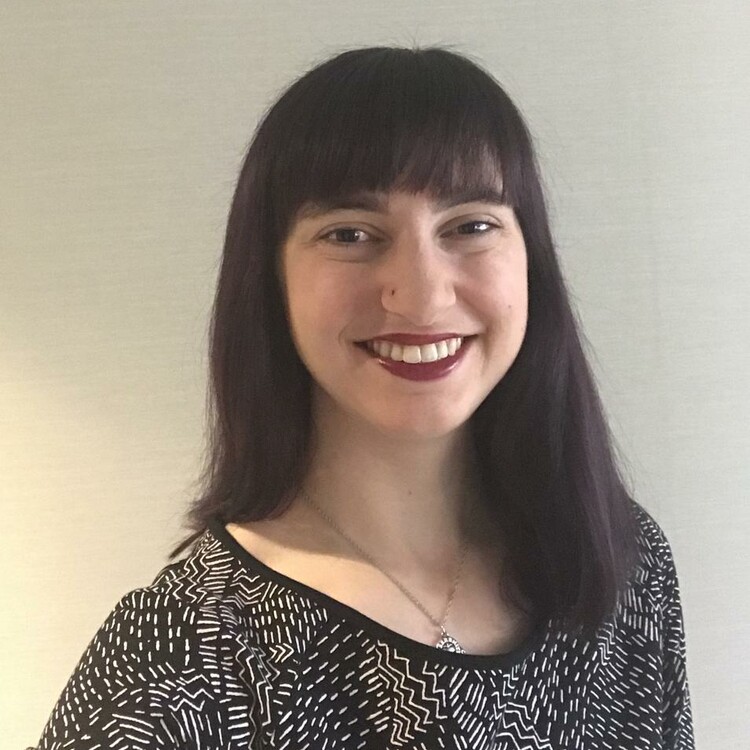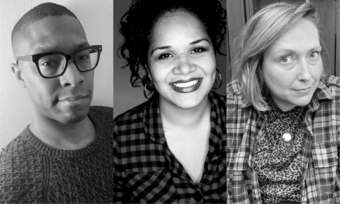An American Playwright in Canada
It's easy to imagine how artists creating in a different country have more access to resources, more engaged audiences, more enthusiasm for new plays. But is it really better somewhere else? This series explores the exciting new play development—and challenges—awaiting theatre creators on both sides of the Canadian/US border.
There are so many ways to develop new plays. When I first “came out” as a playwright, I was overwhelmed by the possibilities for new play development. When I looked around Houston, Texas though, I did not see much there that excited me. During my final year at Rice University, I fought to produce two of my first plays and workshopped as many scripts as possible with colleagues in the English department. But besides The Alley Theatre (which didn't look like a first step), I didn't see where to grow next as an emerging playwright and dramaturg.
While flipping through my first issue of American Theatre magazine, an article outlining the many ways the United Kingdom fosters a culture for new plays (“Over There” by Robert Hedley and Harriet Power) sold me on graduate school and starting my career in the United Kingdom—even if I hadn't already been in the process of applying. New York, though the obvious choice for an American playwright, held even less appeal for me when compared to theatre companies, publishers, and funding that seemed to be waiting for me in the UK.
Instead, I found myself somewhere in between the United States and the United Kingdom: Canada. Sight unseen, I took the advice of my undergraduate mentor and accepted York University’s offer to their Masters in Theatre and Performance Studies. It promised an internship in the industry and access to the third largest theatre scene in the world—or at least that's the statistic I quoted to convince non-theatre family and friends that this wasn't a random choice.
Somewhere in between is indeed what I have found Canada's new play environment to be. It provides more accessible funding to artists than the States through national, provincial, and municipal levels. New plays still have to elbow away stage time away from Mr. Shakespeare and the latest hit musical, but there is a growing thirst in the mid-sized houses, indie theatre scene, and festival circuit for new Canadian theatre.
I'd found a theatre scene that felt both relevant and supportive—but I hadn't found out how to make it sustainable.
Since moving to Toronto in summer 2013, this is how I trained as a playwright and dramaturg: I ran social media for a cold reading series, participated in events hosted by Playwrights Guild of Canada, and the Literary Managers and Dramaturgs of the Americas (LMDA), and interned for in the literary management at the Shaw Festival. I script coordinated the English-language premiere of Maria Milisavljevic's Abyss at Tarragon Theatre, and even managed a production of my ten-minute play Chair with Man at Michigan State University; and I had two residencies with Indy Convergence back stateside. Not to mention the eight different volunteer gigs, I worked at five theatres and three festivals in order to see over ninety performances within my first year in the city.
In spite of this, at the end of my second year in Canada I debated returning back to the States. I felt trapped in an in-between space as a recent graduate and expatriate. In my dogged pursuit to immerse myself in as much new theatre as possible, I hadn't left much time for actually writing the scripts I wanted to produce. I also felt trapped in terms of funding, both for everyday survival and for my projects. Without permanent residency, I didn't qualify for grants available from the Canadian government—and my time to qualify to remain in the country felt limited. The best venue for pushing my work to the next level—self-production at a fringe festival—still felt out of my reach. I'd found a theatre scene that felt both relevant and supportive—but I hadn't found out how to make it sustainable.
Enter the Storefront Theatre's Playwright's Unit. At first my family couldn't understand why I committed to another year in Toronto for a development process that didn't pay me a cent. But what it didn't pay in hard cash, it paid in deeper connections to indie theatres, actors, directors, and my fellow playwrights. It helped me embrace my writing process through one-on-one dramaturgy meetings and short writing retreats. But it opened the most doors through its finale: a week of staged readings that allowed me to hear what Raggedy's Kingdom sounded like in front of a full house. That's when I received heaps of constructive, optimistic feedback, and felt like I finally had something to offer the Toronto stages.
Did I misjudge or receive a skewed view of what new play development looks like stateside? Did I give up too quickly—or did I really need to come to Canada to find my creative home?
My year of play development didn't clear away all of my obstacles. I'm still not a permanent resident (soon I hope!), so funding and subsequent productions aren't falling into my lap. But I have artistic communities that continuously reveal new opportunities for me (and healthcare). There are so many ways I see to keep developing here through workshops, festivals, playwrights' units, cold readings, and retreats. I'm excited to have choices for who I work with and how I share my scripts with the world.
I still wonder what's going on in the United States, besides political chaos and gun violence. Three years later it feels so far away, even though it's where I grew up and it's the theatre scene I entered first. I hear Canadian artists moaning about how much better the development process is there, but I don't know how to respond. Did I misjudge or receive a skewed view of what new play development looks like stateside? Did I give up too quickly—or did I really need to come to Canada to find my creative home?
I'm afraid the grass will always look greener on the other side, but just in case, I'd like to consult two other emerging artists to clear up the picture of new play development on both sides of the border.
In the next two installments, I'll share the perspectives of two dramaturgs working at the forefront of new play development to find out what's exciting, what's a major drag, and what the overall trends are in in Canada and the United States. Let's get a clearer view of what's growing in both of our backyards.












Comments
The article is just the start of the conversation—we want to know what you think about this subject, too! HowlRound is a space for knowledge-sharing, and we welcome spirited, thoughtful, and on-topic dialogue. Find our full comments policy here
Coming from someone who has participated in the arts scene in both Canada and The United States I can safely say there are pros and cons to each. I’ve never been to Toronto but in Vancouver, and from my understanding Canada as a whole the arts are regarded much higher than they are in the U.S. That being said there has definitely been a bit of resurgence lately on new works in the United States, particularly in the smaller markets and universities where budgets don’t always allow for big classical productions. I feel that Canada may be the place to go if you’re looking to make a steadier living long-term in the arts, however the U.S. just has a lot more space to offer when it comes to new and experimental work.
I have heard a lot of the same--which is why I'm excited for the next two installments in the series. I feel like there's more to it, more we can learn from each other in terms of how theatre is created and supported in both countries. I can't wait to hear what you think. I've only been in Toronto, but it's interesting already to hear how you have felt the difference on the other coast.